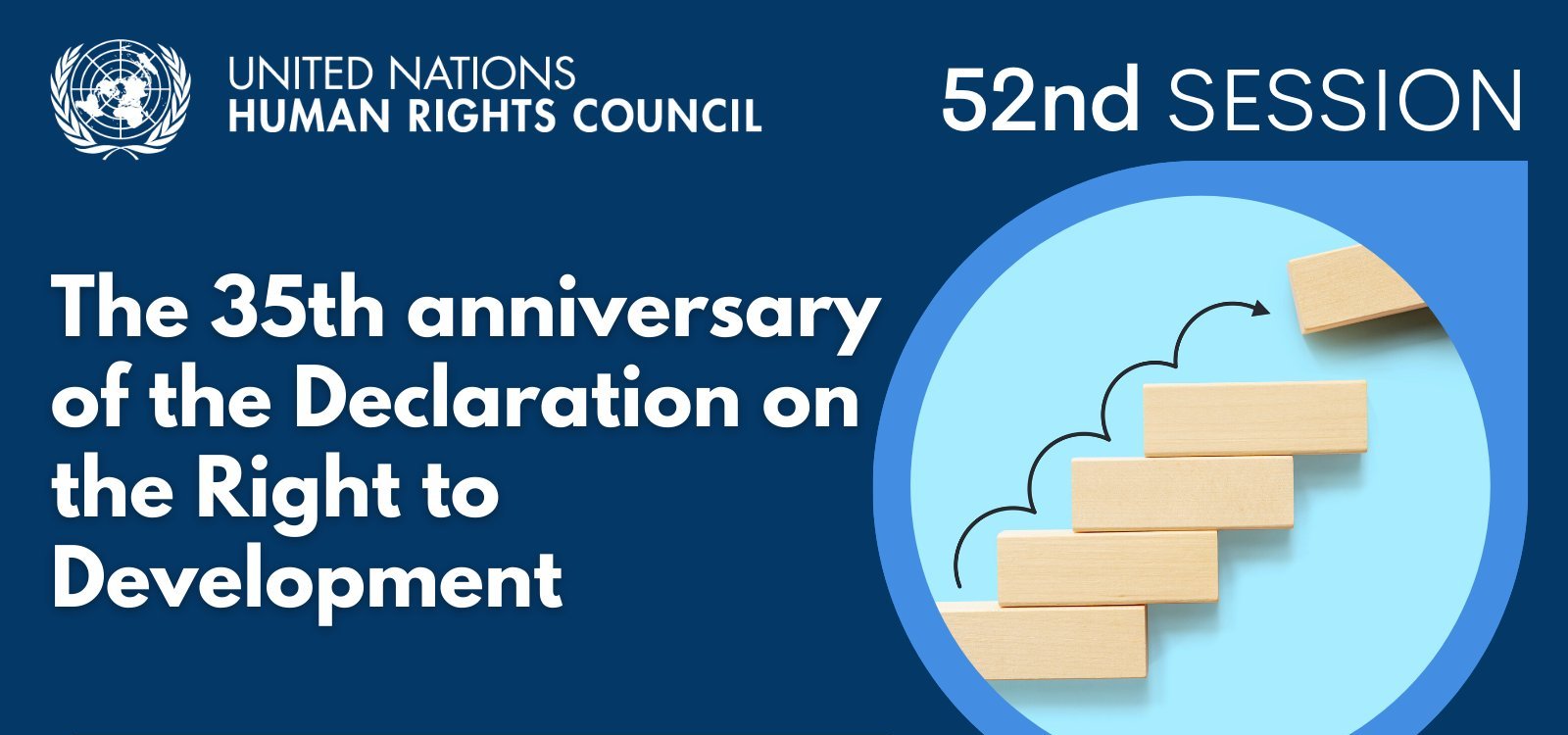High-Level Meeting on the Right to Development

“Once and for all, the time has come to free the right to development from the trap of the political games, as well as from the tendency to cherry-pick its contents. Let it fly!”
With this powerful call, the Main Representative of Associazione Comunità Papa Giovanni XXIII (APG23) concluded her statement, addressing the Full-Day High-Level Meeting on the Right to Development, which took place between February 28th and March 1st, during the first days of the 52nd session of the Human Rights Council. This year marks the 35th Anniversary of the UN Declaration on the Right to Development (RtD), and many voices, from States, civil society, and panellists, urged for States not to lose momentum and proceed with the full implementation of this Right.
Mr Türk, UN High Commissioner for Human Rights, reminded us that while we are halfway through the timeline of Agenda 2030, we are also badly off-track, for reasons that are only partially due to the Covid-19 pandemic or the invasion of Ukraine.In our statement, APG23 recognized how “nowadays, inequality has worsened to the point of becoming a threat to our societies, undermining progress in the fight against poverty and endangering the future of our planet. Crisis after crisis the long-term structural gaps have widened and consolidated”.
The Right to Development is not about charity, it is an inalienable right, enshrined in the UN Charter. The High Commissioner powerfully called for fair distribution of economic resources at all levels, reminding all participants that genuine development includes minorities, indigenous people, migrants and women, and that “genuine development is not about enriching a few by exploiting many”. In the same way, several countries highlighted how unilateral coercive measures represent an obstacle to the realization of the Right to Development.
In the second part of the Meeting, Mr Saad Alfarargi, Special Rapporteur on the RtD, expressed his concerns about several issues: the decrease in engagement with this right, from both States and civil society, the reduction in the level of awareness, the rise in nationalism and the shift away from international solidarity. Along with Mr Zamir Akram, Chair-Rapporteur of the Working Group on the RtD, they reiterated that, if supported by a wide and strong engagement, the Right to Development has now the best chance to survive and succeed.
